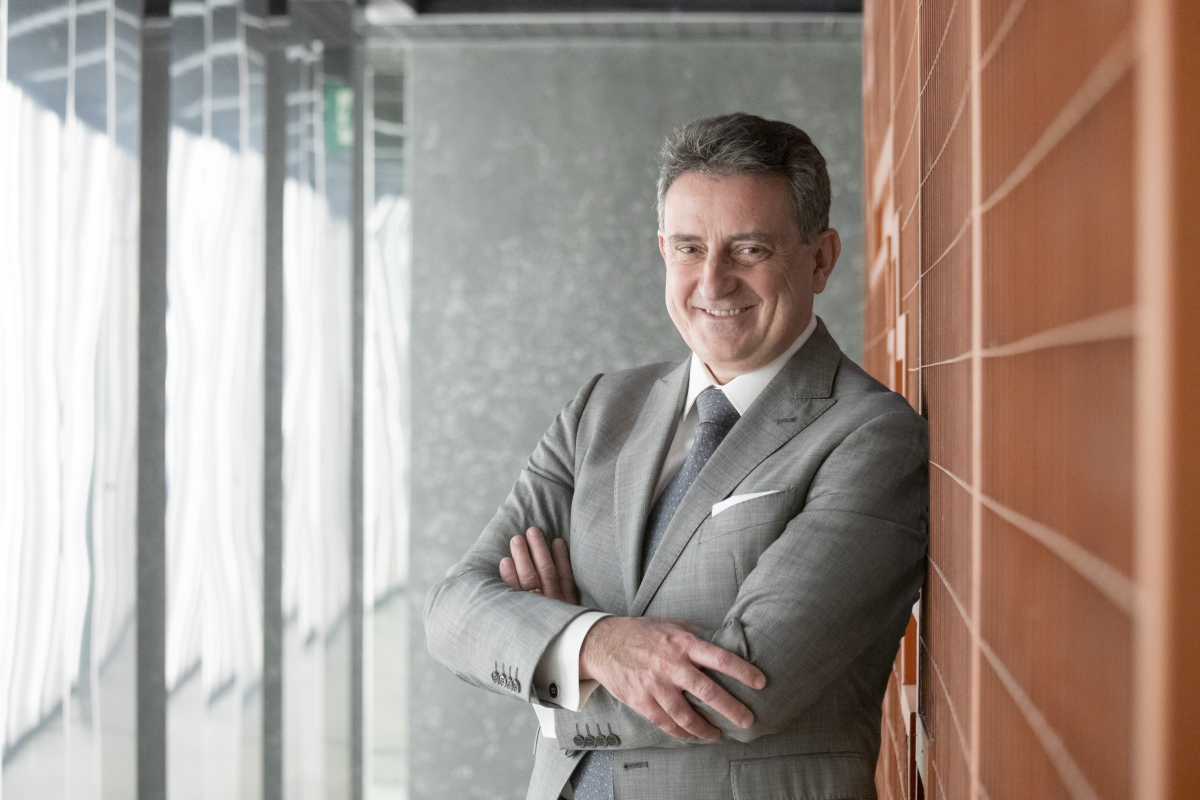Gabriele Palma: «Barcelona has an international outlook»

Thomas Scholl has been based in Barcelona in August 2018. The 51 year old German national is married with two children and has lived previously in Stuttgart and Milan. He is Chief Financial Officer at Freixenet, Spain’s largest exporter of sparkling wine, as well as the world’s largest producer of cava. Freixenet has subsidiaries all over the world and wineries in the best wine-growing areas, including the United States, Mexico, and France.
Gabriele Palma is 56 years old, married, and has two daughters. Born in Brindisi in Southern Italy, he has lived in Rome, Cologne and Barcelona. During his lengthy career in marketing and general management, mainly in multinationals, he has worked in in several fields: the automotive business, advertising, communication, consultancy, and education. He joined SEAT in 2012, and in 2019 he was appointed as General Manager of CASA SEAT. The center opened its doors in June 2020 at the height of the pandemic and is now well-recognized in Barcelona as a cultural center and the go-to place for insights on urban mobility.
Why did you choose Barcelona?
It is difficult to explain in one sentence. My first visit to Barcelona was for work, in 1994, and whenever I came back, I always felt really at home, which must have had something to do with my Southern Italian roots.
What are Barcelona’s strengths?
Barcelona is multifaceted; everyone values it in their own way, appreciating what is most important to them. Industrial facilities and residential areas have been within walking distance of each other for more than a century, generating a model has affected the design of the city and the character of the people who live here
Barcelona’s principal quality is easy to explain: it is a great city to live and work in
In what ways could things be improved?
Like all major cities, Barcelona needs to adapt to the major changes occurring in the world. Climate change, urbanization, technological transition, aging, and the new world economy all pose challenges.
My recipe for Barcelona is to work on its strengths and potential. Its strengths include urban design—the unique combination of Barcelona’s strategic position and its excellent land, sea, and air connections—and the industrial fabric of the Greater Barcelona metropolitan area. And its multiculturalism offers considerable potential. Barcelona is in a position to achieve the same standards as the main European cities, but it needs stronger commitment to opening up.
What do you think will help the city to overcome the Covid-19 crisis?
Barcelona has an international outlook, which means that it is able to attract high levels of investment.
If both public and private sectors can work together to attract major international investors and professionals, Barcelona has the chance to position itself as a key player in various strategic sectors.
What challenges do you think Barcelona will face once the health crisis is over?
I see three major challenges. The first is to establish which economic sectors have suffered most and need urgent measures. The second is to clarify the city’s identity; the current Barcelona «brand» owes much to the work done since the ’92 Olympic Games, but it needs to be updated, while not losing sight of its unique identity, the quality of life of citizens, and respect for the environment. The third challenge is to address the new post-Covid scenario.
All three are very urgent. The decisions taken at the beginning of the recovery will set the tone for a long economic cycle.
What are your hopes for Barcelona in the coming years?
I think the city needs to open up internationally and value diversity in all its facets. This is an asset that Barcelona already has, but it needs to embrace it more fully.
Which city do you consider to be your city? What do you miss most?
My connection with cities is to do with the people, and the people I am closest to today live in Barcelona. I feel at home here, although I do I miss other special people from the many places I have lived.
Read the interview in El Periódico.
If you want to know the latest English news about Barcelona and the people who bring it to life, sign up to our Blog.








